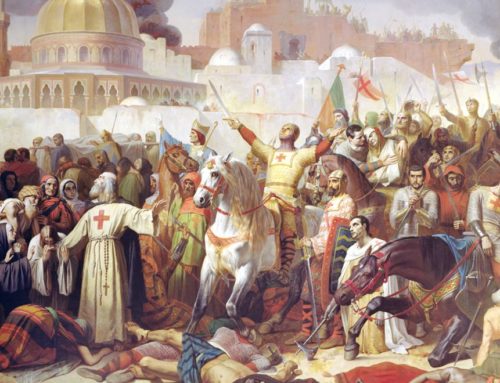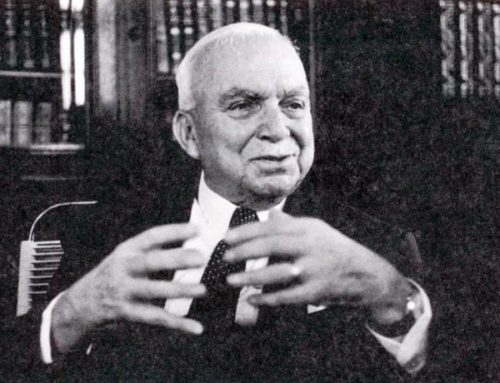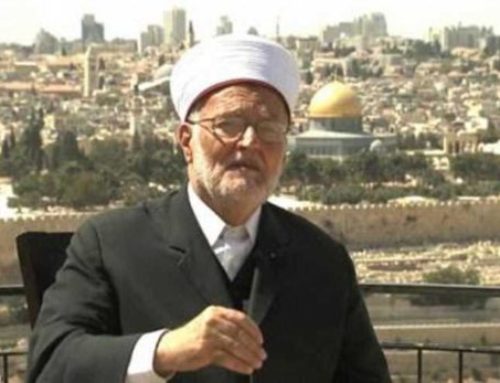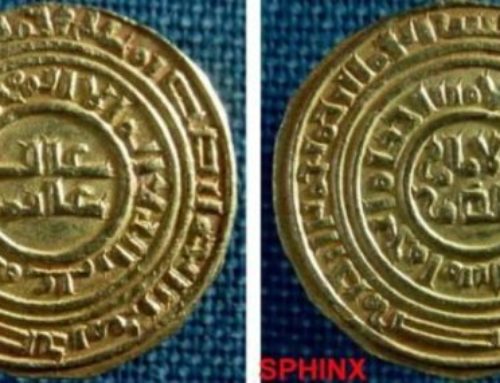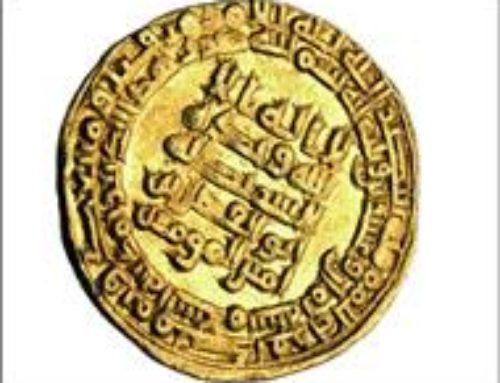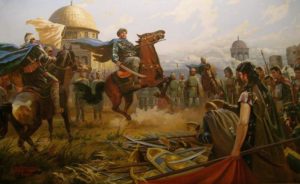
Salah Al-Din’s name is so closely tied to the history of Jerusalem that, oftentimes, people instinctively associate Jerusalem with him. In this article, we will learn about the life and achievements of Salah Al-Din.
Who is Saladin?
Salah Al-Din, also known as Yusuf Ibn Ayyub 1138-1193,[1] was a Kurdish leader who ruled over Egypt and Syria in the Middle Ages. He was born near Baghdad in 1137 to the well known Ayyubi family. [2]His father and uncle moved to Mousel, where they formed an alliance with the ruler of Iraq at the time, Imad Al-Din Zengi. The strong Sultan Zengi took care of the new family, who ultimately prospered under his government. .[3] The family was known for their military intelligence and soon reciprocated the sultan’s kindness by conquering new territory for him. This territory included Damascus, where Salah Al-Din was later sent to receive an education.[4]
After Imad Al-Din’s death, his son Nour Al-Din Zengi took over. The close relationship with the Ayyubi family continued, and the new sultan became particularly close to Salah Al-Din, who showed early signs of brilliance.[5] Soon after, Salah Al-Din progressed rapidly to high ranks in Nour Al-Din’s military. Eventually, became his confidant and assistant..[6]
Achievements
Salah Al-Din was the real founder of the Ayyubid dynasty [7] that ruled in Egypt and Syria for decades.[8]The Arab hero who came from Kurdish origins was able to unify wide territories of the Arab and Islamic world. He ruled over Egypt, Syria, Mesopotamia, the Hejaz and Yemen.[9]
Why is Saladin Important? What is He Most Famous For?
Salah Al-Din is best known for his role as a leader, liberating Jerusalem from the Crusaders, but even before that, Salah Al- Din played an important role in the history of the region. Nour Al-Din Zengi sent Salah Al-Din and his uncle to Egypt, which, at the time, was the capital of the Fatimid Dynasty.[10] Once in Egypt, Salah Al-Din started calling for the establishment of a Sunni state in support of the Abbasid dynasty in Syria. Upon the death of the last Fatimid ruler,.[11]Salah Al-Din was able to take over Egypt where he built the walls of Cairo, established a great army, and fought internal discord and rebellion .[12]
Only then, after 16 years of hard work, was he able to attack Crusaders in Palestine and surrounding territories, which later became known as his crowning military victory[13]
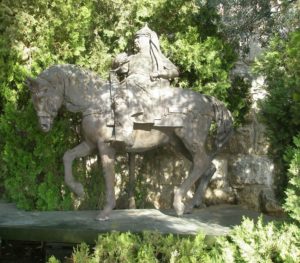
Liberating Jerusalem
Upon establishing a strong army in Egypt and Syria, other suitable circumstances paved the way for Salah Al-Din to fight Crusaders and restore Jerusalem to Muslim rule. Most notably, the death of the Crusaders King Baldwin V caused the Crusaders to suffer from internal weakness, as power struggles took the stage. Salah Al-Din took advantage of an incident, known historically as Safouria, when the Crusader ruler of Kerak attacked a pilgrimage convoy in violation of a peace agreement with the Muslims.[14]This incident led to the Battle of Hattin, which liberated Jerusalem from Crusader rule and established Muslim governance over the region. ,[15]Shortly before his death, Salah Al-Din stopped another Crusade attack that was led by Richard the Lionheart, King of England, by signing a peace treaty with him. which allowed western Christians access to Jerusalem for pilgrimage, so long as the Crusader Christians formally left the city and did not live within its boundaries.[16]
Religious Tolerance
Salah Al-Din, after liberating Jerusalem, was gracious and noble in his governance. The Muslim leader indeed gained his fame not from the success of his battles, but from his personal traits and noble characteristics .[17]Despite the atrocities committed by the Crusaders, Salah Al-Din allowed them to leave Jerusalem upon paying a ransom in which men paid ten Dinars, women paid five and children paid two. He paid money for those who were not able to do so from his own pocket, while he allowed the Arab Christians who were original inhabitants of Jerusalem to stay in the city. He also allowed the Jews to return to the city after years of exclusion.[18]
Influence on Jerusalem
Salah Al-Din and his ancestors from the Ayyubid dynasty left a great influence on Jerusalem and its rich cultural heritage. Jerusalem gained a special status in the newly emerging power. Right after the liberation, Salah Al-Din started extensive renovations and construction in Jerusalem, where he and his followers cleaned Al-Aqsa mosque, rebuilt the walls, and washed the mosque with rose water. [19]Salah Al-Din personally worked on these projects, using his own two hands to aid in the construction projects .[20] There is a stone monument in the southern part of Al-Aqsa Plaza that mentions the work of Salah Al-Din in Jerusalem.[21]
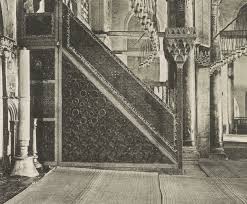
Personal Traits and Characteristics
Although Salah Al-Din was a well known militant ruler, he never liked the sight of blood, as it indicated too much killing. He advised his sons after him not to shed blood as, according to him, “blood does not sleep.” [22]
Many influential characters in modern history praised Salah Al-Din and considered him a rare example of a great leader. The British Prime Minister Churchill considered him one of the greatest kings humanity has ever known, while the British author Reid Richard described him as the greatest man on earth.[23]
[1] Joseph Millis, Jerusalem: the Illustrated History of the Holy City (London: Andre Deutsch, 2012),p39
[2] “Hattin Battle and Saladin,” at https://blogs.aljazeera.net/blogs/2018/12/6/صلاح-الدين-الأيوبي-ومعركة-حطين-الفاصلة posted June 12, 2018
[3] Id
[4] Teddy Kollek and Moshe Pearlman, Jerusalem: a History of Forty Centuries (New York: Random House, 1968),p184
[5] https://blogs.aljazeera.net/blogs/2018/12/6/صلاح-الدين-الأيوبي-ومعركة-حطين-الفاصلة
[6] Millis, Jerusalem, p 39
[7] Kollek and Pearlman, a History of Forty Centuries, p184
[8] Millis, Jerusalem, p184, and “Saladin and the Legend of Savior in History,” at https://blogs.aljazeera.net/blogs/2019/6/17/صلاح-الدين-الأيوبي-وأسطورة-المخلص-في-التاريخ posted June 17, 2019
[9] Millis, Jerusalem, p184
[10] https://blogs.aljazeera.net/blogs/2019/6/17/صلاح-الدين-الأيوبي-وأسطورة-المخلص-في-التاريخ
[11] Kollek and Pearlman, a History of Forty Centuries, p 184
[12] https://blogs.aljazeera.net/blogs/2019/6/17/صلاح-الدين-الأيوبي-وأسطورة-المخلص-في-التاريخ
[13] Id
[14] https://blogs.aljazeera.net/blogs/2018/12/6/صلاح-الدين-الأيوبي-ومعركة-حطين-الفاصلة
[15] Millis, Jerusalem, p184
[16] Kollek and Pearlman, a History of Forty Centuries, p 184-185
[17] Id p 185
[18] https://blogs.aljazeera.net/blogs/2019/6/17/صلاح-الدين-الأيوبي-وأسطورة-المخلص-في-التاريخ
[19] Kollek and Pearlman, a History of Forty Centuries, p 185
[20] Isaac Husseini, The City of Jerusalem: Its Arabism and Status in Islam (Syria and Lebanon: Dar Al-Qalam and Dar Al-Shameiah, 2000), p77-78
[21] Id p 78
[22] https://blogs.aljazeera.net/blogs/2019/6/17/صلاح-الدين-الأيوبي-وأسطورة-المخلص-في-التاريخ
[23] Id
Picture1 https://www.paliroots.com/blogs/news/saladin-reclaiming-jerusalem-in-1187
Picture 2 Monument of Saladin in the Old City of Jerusalem https://www.wdl.org/en/item/14482/
Picture 3 https://commons.wikimedia.org/wiki/File:Saladin,_Jerusalem.JPG


